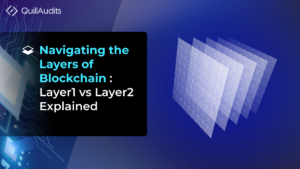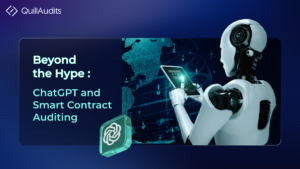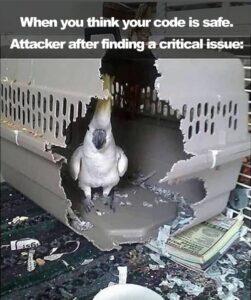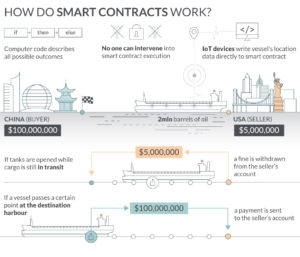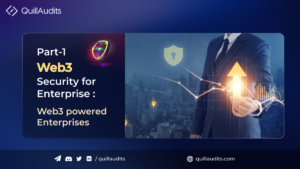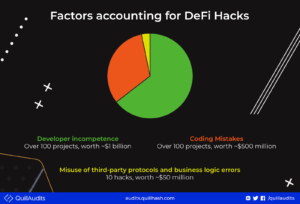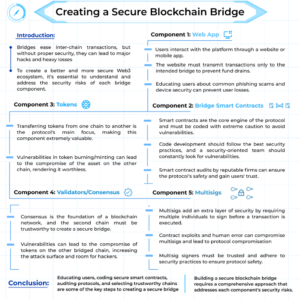Smart contract vulnerabilities can damage the DeFi projects beyond the obvious. Not only can these hurt or damage a single project, but can also make the investors back off from the DeFi ecosystem as a whole.
It is the smart contracts that have made the DeFi what it is. Though the technology behind the smart contracts has gained strength steadily, another problem has scaled up and it cannot be ignored. The developers are often in a rush to set sailing with their projects before competitors. In hurry, they tend to ignore vulnerabilities on the smart contracts, leaving enough gaps for the unscrupulous to sneak in.
Audit – a potent tool to plug the gaps
The only way to tighten up the gaps in the smart contract is the audit. The process involves a specialized team of auditors scouting for bugs in a smart contract’s code, exploring possible vulnerabilities that hackers might manipulate, or analysing code that doesn’t align with the standard procedures. While smart contracts certainly play a big role in ensuring security, it also helps in making the application more efficient in the side-lines.
Regardless whether you are launching your umpteenth DeFi project or the first ever, you need an experienced team of auditors to cast a thorough exploratory look at the smart contract. It might turn out into a lifesaver, protecting your project from severe smart contract vulnerabilities. You cannot ignore the fact that a smart contract is a self-executing code and all transactions are on a blockchain, making them immutable.
Understanding the Process of Audit
The process of audit involves running of various test cases by the audit team. They conduct manual as well as software-based testing to verify that the code is producing the desired test result for its intended use case. The auditing team might also leverage in-house and open source security tools, depending upon the framework of the smart contract.
Using the right combination of manual and automated audit is important for attaining the desired results. A team of seasoned smart contract auditors will be able to figure out what works for a given audit. When it comes to manual audit, skilled code auditors perform it to testify the precise implementations of its specifications. The importance of automated audit, however, can never be underestimated, so several smart contract code testing tools are tested in tandem. Functioning on the methodical principles of mathematics, these tools have proven to be quite effective while implementing specs-based contracts.
Smart contract auditing covers within its gambit independent assessment, verification process, detailed testing, and comprehensive reporting.
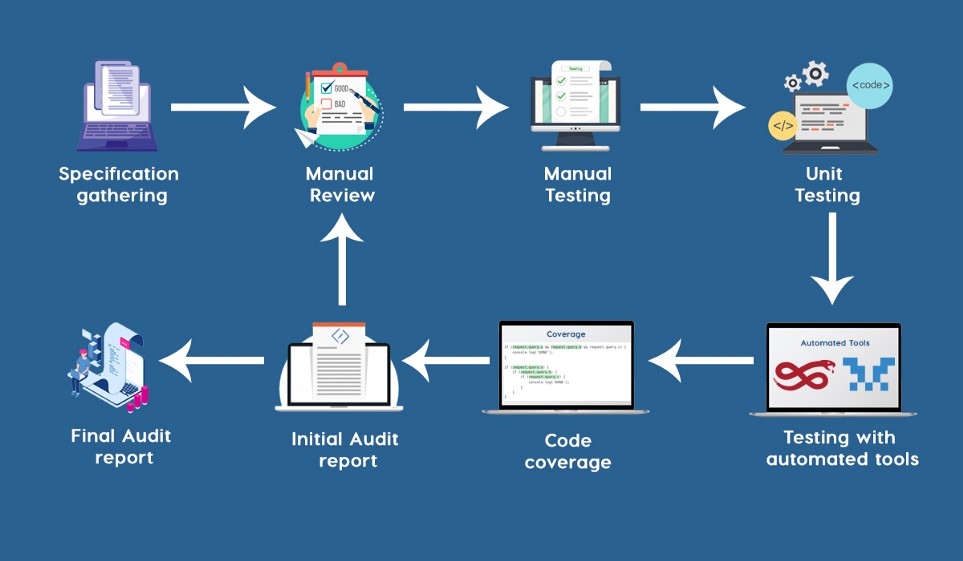
Assessment and Verification Phases
In the assessment phase, the auditing team explores the proof of concept and the smart contract code for any kind of vulnerabilities, that might be common ones like re-entrancy or some deeper ones, tending to be harder to detect. Process verification is done to ensure that the contract meets the specific requirements of a given project. Auditors review the smart contract architecture and the way logic is implemented. The source code and libraries are reviewed. Auditors also go through the documentation, if available to comprehend, to get aware of the decision made during the smart contract development phase.
Testing Phase
Now begins the bout of rigorous testing. Unit testing is done under diverse conditions and within different parameters. The goal of this exercise is to establish whether various functions of the contract are in sync with the design.
Next in line for the tests are the contract for variables. As there could be a broad array of contract triggers and resulting actions, to test the contract is important for ensuring the contract is efficiently handling possible variations. Pressure testing is also executed to test the smart contract for variables arising from its implementations in real world situations. Auditors put across their recommendation on the basis of testing. After the implementation of the required changes, re-verification of the contract is conducted to establish that the code modifications haven’t resulted in any new vulnerabilities.
Must Read: Top 7 Use Cases of Smart Contracts in DeFi
Reporting Phase
Final phase of auditing involves an in-depth report that details the vulnerabilities picked during the process and steps taken to block the gaps. This is followed by a set of recommendations.
Areas of Focus while Auditing
When auditing a smart contract, experts focus on areas like:
- Common errors such as stack problems, re-entrance, and compilation mistakes.
- Known errors and security flaws in smart contract host platform.
- Simulate attacks on the contract. In other words, conduct break testing.
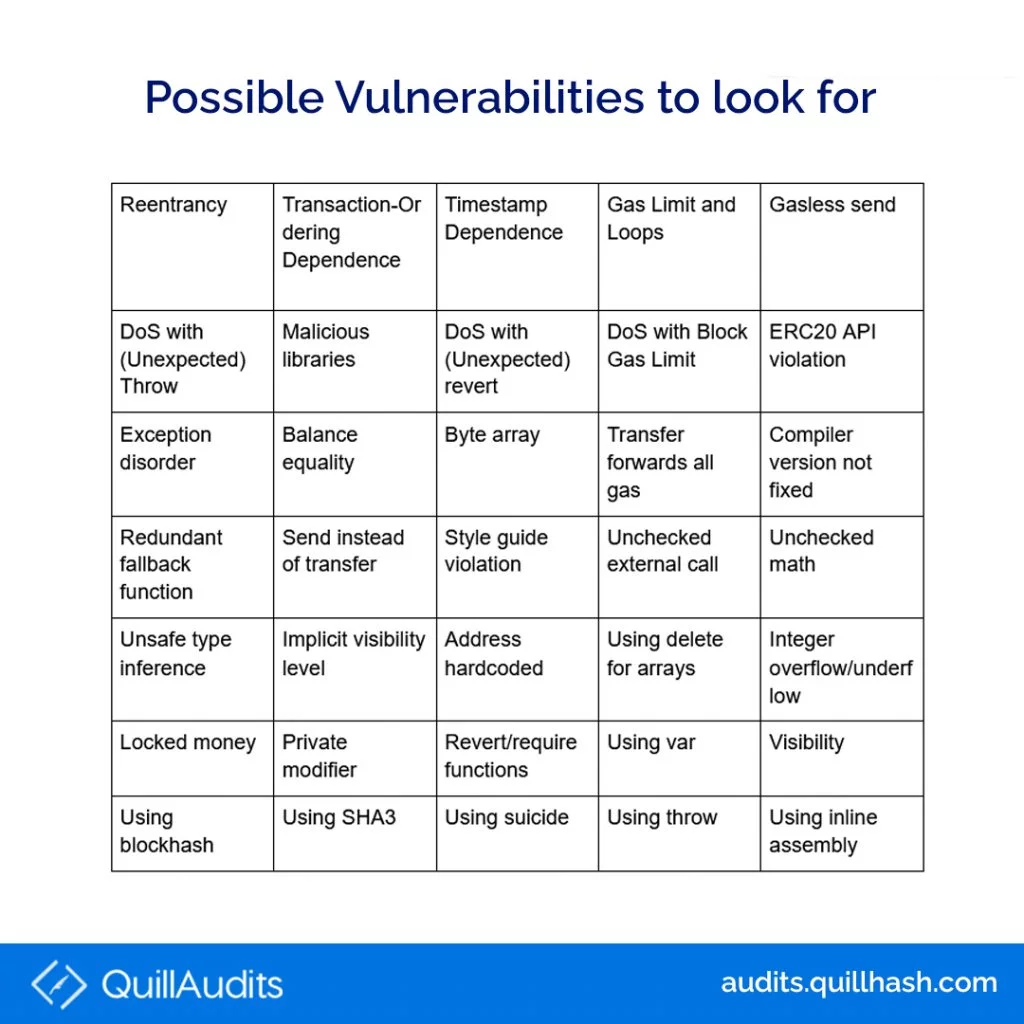
Performance Optimization
To ensure your smart contract is performance-optimized along with auditing is quite a useful approach. Quality of the code has a direct bearing on the performance of the smart contract. Code modifications can be done with the objective of improving code quality. Contracts with well optimized code are also likely to cost less.
Performance optimization includes exploring the contract for the code that might not be exactly wrong but practically slowing down the performance. For instance, if the contract is about the payments, the auditors may check the gas price related to these transactions.
Before auditing starts, the project manager and auditors can mutually decide whether to include performance optimization in auditing.
Wrapping up
Smart contract is the engine behind DeFi. However, vulnerabilities in the contract give a hook to the unscrupulous to exploit the crypto assets stored.
The way out of this imbroglio is a complete audit. A team of expert auditors explores the smart contract to pick the possible vulnerabilities and prevent any such incident of a hack. Manual and automated auditing is conducted in tandem for optimum effect. Phases of smart contract auditing include independent assessment, verification process, detailed testing, and comprehensive reporting.
Reach out to QuillAudits
QuillAudits is a secure smart contract audits platform designed by QuillHash
Technologies.
It is an auditing platform that rigorously analyzes and verifies smart contracts to check for security vulnerabilities through effective manual review with static and dynamic analysis tools, gas analysers as well assimulators. Moreover, the audit process also includes extensive unit testing as well as structural analysis.
We conduct both smart contract audits and penetration tests to find potential
security vulnerabilities which might harm the platform’s integrity.
If you need any assistance in the smart contracts audit, feel free toreach out to our experts here!
To be up to date with our work, Join Our Community:-
Twitter | LinkedIn | Facebook | Telegram
Source: https://blog.quillhash.com/2021/10/22/how-to-efficiently-conduct-defi-smart-contract-audit/
- 7
- All
- All Transactions
- analysis
- Application
- architecture
- Assets
- audit
- Automated
- blockchain
- bugs
- cases
- code
- Common
- community
- competitors
- contract
- contracts
- crypto
- DeFi
- Design
- developers
- Development
- ecosystem
- Effective
- Exercise
- experts
- Exploit
- Figure
- First
- flaws
- Focus
- Framework
- Free
- GAS
- hack
- hackers
- Handling
- How
- How To
- HTTPS
- Investors
- IT
- join
- Leverage
- Line
- Making
- mathematics
- medium
- open
- open source
- Other
- payments
- performance
- platform
- pressure
- price
- project
- projects
- proof
- proof of concept
- quality
- real world
- report
- Requirements
- Results
- review
- running
- rush
- security
- set
- Slowing
- smart
- smart contract
- Smart Contracts
- sneak
- So
- Technology
- test
- Testing
- tests
- The Source
- Transactions
- Verification
- Vulnerabilities
- within
- words
- Work
- works
- world



